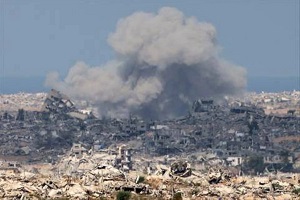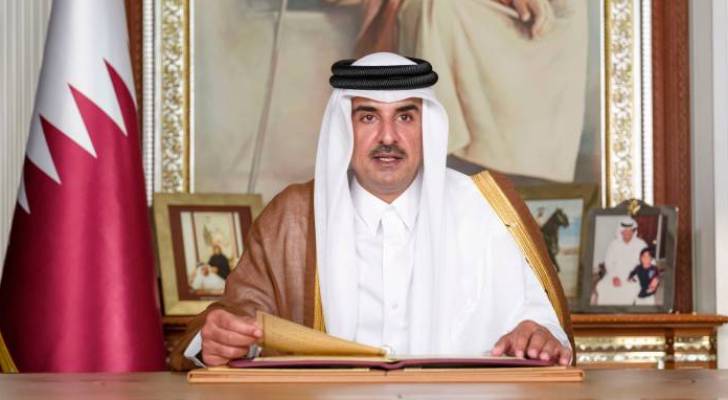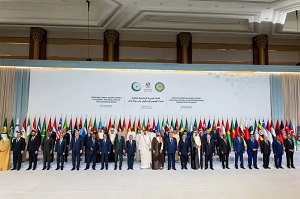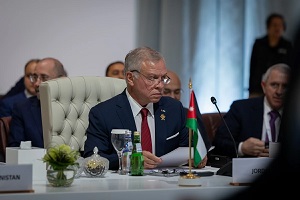Shifts regional geopolitics - By Mohammad Abu Rumman, The Jordan Times
The real question today is not what the Arab–Islamic Summit in Doha could have done differently. What matters is that the Israeli strike on Qatar has reshuffled the entire regional scene. The conflict is no longer confined to Gaza or the borders of Lebanon and Syria—it has now reached the very heart of the Gulf. That alone is enough to compel Arab states to rethink their approach, even if no one expects dramatic military responses. The event itself has changed the rules of the game, imposing new dynamics and calculations. If ignored, the costs will be far greater than anything witnessed so far.
Nearly a decade ago, during the Obama administration, a pragmatic idea took root in the Gulf: that Gulf security could be managed separately from the broader Middle East. The priority, it was thought, should be internal, focused on economics, transformation, and energy. The main threat was defined as Iran and its proxies, while Israel was engaged through “regional peace” and economic interdependence, with the hope that the Palestinian question could be contained within manageable limits. The Gaza war shook this assumption, but the Doha strike shattered it completely: Gulf security can no longer be separated from what happens in the Levant. The region is a single theater, and its crises are deeply intertwined.
This transformation demands a redefinition of allies, adversaries, and threats. There is a growing realization in the Gulf that Israel’s current policies extend beyond Gaza and are driven by a mindset of regional dominance. That presents a direct challenge to Gulf stability. This is why Saudi Arabia’s conditions for normalization have become more stringent: clear talk about a viable Palestinian state, real political and security guarantees, and a coherent plan for the “day after” in Gaza. Added to this is a pragmatic approach to Syria and other regional files, positions that directly clash with the agenda of Israel’s ruling far right. Normalisation is no longer a “free gift”; it is conditional upon concrete outcomes.
The strike on Qatar is also pushing toward wider regional coordination and reshaping strategic perspectives. This includes today’s Gulf–Turkish rapprochement, based on shared concerns over Netanyahu’s policies and regional stability. It opens the door to broader cooperation with Ankara as an emerging regional power capable of helping to redesign the balance of power and build a stronger deterrent against Israeli unilateralism.
When viewed from the big picture, the notion of collective regional security becomes clearer. What happens in Lebanon reverberates in Syria, impacts Jordan, and affects Iraq’s stability. Jordan, by virtue of geography and its regional role, occupies a sensitive position between the Levant and the Gulf. Egypt, too, is directly affected by tensions in Gaza and Sinai, economically, politically and in terms of security, and cannot isolate itself from the surrounding crises. What we see today is a tightly interwoven map of security, politics, economics, and social dynamics, all feeding back into the domestic stability of both Gulf and Levantine states.
If Arab governments allow fear of confrontation with Israel—or even with the Trump administration—to dictate their choices, the costs will be very high. Israel is not only expanding and threatening regional security; its policies are feeding back into domestic politics, straining regimes’ relations with their societies, and raising sharp questions about political legitimacy. Weak positions and hesitation will no longer suffice. Mediation alone is inadequate. If President Donald Trump is the only one who could rein in Netanyahu, he will not feel compelled to do so, or confront the pro-Israel lobby, unless he believes that the costs of supporting Netanyahu’s agenda are intolerably high. Judging by Senator Marco Rubio’s recent statements on Hamas and the Gaza war, it is clear that the Trump administration remains far from such a realization.
Jordan, for its part, read the shift early. From the beginning of the Gaza war, it drew a red line against displacement and altered its language toward Netanyahu’s government. At the Doha summit, King Abdullah was explicit, describing that government as extremist and linking its actions to genocidal policies in Gaza and the West Bank, while warning of their broader threat to the region as a whole.
Latest News
-
 Israel launches ground assault on Gaza City
Israel launches ground assault on Gaza City
-
 Qatari emir to arrive in Amman Wednesday for talks with King Abdullah
Qatari emir to arrive in Amman Wednesday for talks with King Abdullah
-
 ‘Gaza is burning,’ Katz says after night of intensive 'Israeli' bombardment
‘Gaza is burning,’ Katz says after night of intensive 'Israeli' bombardment
-
 Arab-Islamic Summit issues final statement, condemns Israeli attack on Qatar, calls for accountability
Arab-Islamic Summit issues final statement, condemns Israeli attack on Qatar, calls for accountability
-
 King delivers Jordan's address at Emergency Arab-Islamic Summit in Doha
King delivers Jordan's address at Emergency Arab-Islamic Summit in Doha